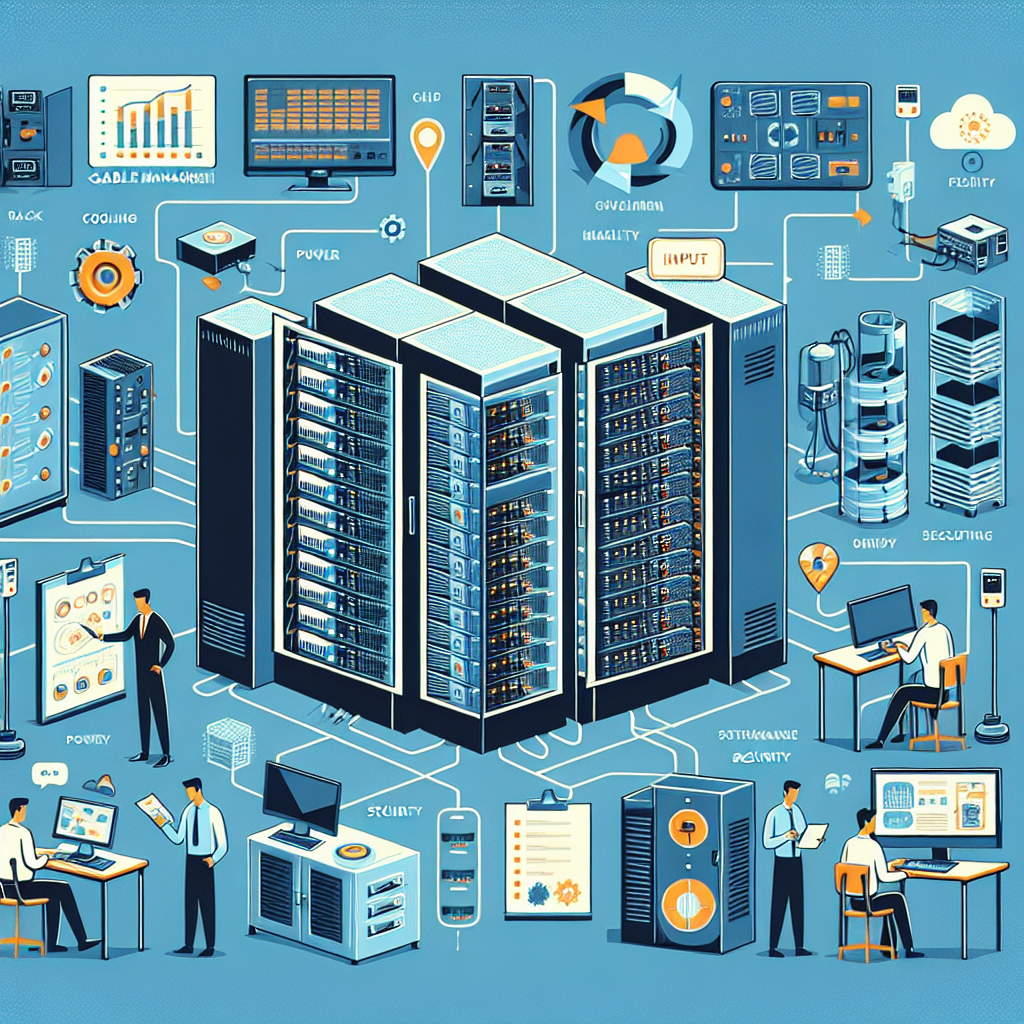Your cart is currently empty!
Best Practices for Effective Data Center Facilities Management

In today’s digital age, data centers play a crucial role in storing, processing, and managing large amounts of data for organizations of all sizes. As data center facilities continue to grow in complexity and scale, effective data center facilities management has become more important than ever. To ensure optimal performance and efficiency, data center managers must follow best practices in managing and maintaining these facilities.
Here are some best practices for effective data center facilities management:
1. Regular maintenance and monitoring: Regular maintenance and monitoring of data center facilities are essential to identify and address potential issues before they escalate into major problems. This includes routine inspections of power distribution systems, cooling systems, and other critical infrastructure components. Monitoring tools can also be used to track performance metrics and alert managers to any abnormalities.
2. Efficient cooling systems: Cooling systems are critical for maintaining the optimal operating temperature in data centers. To prevent overheating and ensure the reliability of IT equipment, data center managers must implement efficient cooling solutions, such as hot aisle/cold aisle containment, raised floor cooling, and in-row cooling units. Regular maintenance of cooling systems is also necessary to ensure they are operating at peak efficiency.
3. Energy efficiency: Data centers are significant consumers of energy, so it is essential to implement energy-efficient practices to reduce operating costs and minimize environmental impact. This includes using energy-efficient equipment, implementing virtualization technologies, and optimizing airflow management. Data center managers should also consider renewable energy sources, such as solar or wind power, to further reduce their carbon footprint.
4. Disaster recovery and business continuity planning: Data center facilities are vulnerable to various risks, including natural disasters, power outages, and cyber-attacks. To mitigate these risks, data center managers must develop and implement comprehensive disaster recovery and business continuity plans. This includes regular backups of critical data, redundant power and cooling systems, and off-site data storage facilities.
5. Security measures: Data centers house sensitive and valuable information, so it is crucial to implement robust security measures to protect against unauthorized access and cyber threats. This includes physical security measures, such as biometric access controls and surveillance cameras, as well as cybersecurity measures, such as firewalls, intrusion detection systems, and encryption protocols.
6. Documentation and asset management: Effective data center facilities management requires careful documentation and asset management to track and maintain all equipment, systems, and configurations. This includes creating detailed inventory lists, labeling equipment, and documenting maintenance schedules and procedures. Asset management tools can also help track equipment lifecycles, warranties, and service contracts.
By following these best practices for effective data center facilities management, organizations can ensure the reliability, performance, and security of their data center facilities. With the increasing importance of data in today’s digital economy, proper management of data center facilities is crucial for the success of any organization.

Leave a Reply